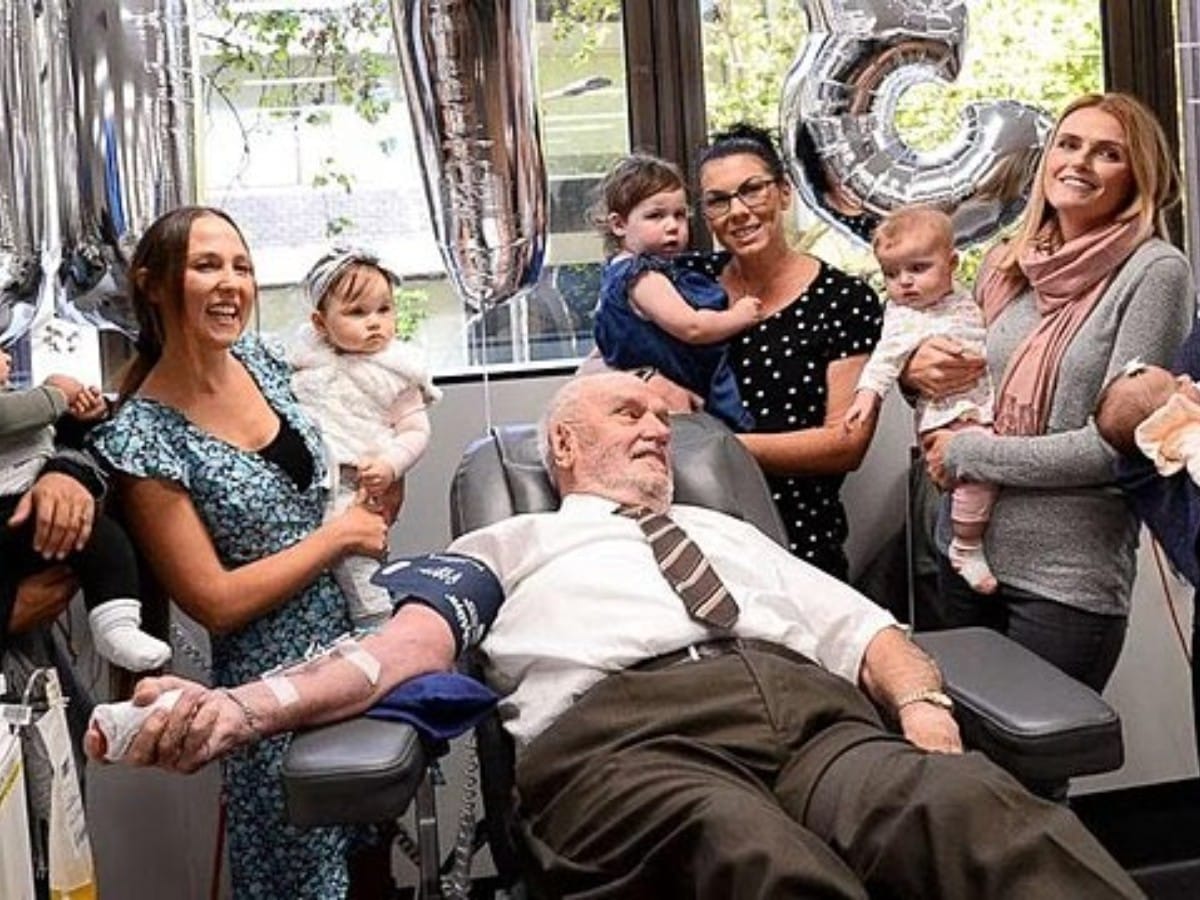The Man With The Golden Arm: How One Vow Saved 2.4 Million Babies
He saved over 2.4 million babies! James Harrison, "The Man with the Golden Arm," donated plasma for 60+ years. His rare Anti-D antibodies created the injection that virtually ended Rhesus disease in Australia. An unmatched legacy of altruism.

James Harrison, an Australian national, is undoubtedly the world's most celebrated blood donor, earning the nickname "The Man with the Golden Arm" for his extraordinary life-saving contributions. His selfless commitment to donating blood plasma over more than six decades is a medical phenomenon, estimated to have saved the lives of over 2.4 million babies. His unique gift, a high and rare antibody known as Rh-negative anti-D immunoglobulin (Anti-D), sets him apart in the history of blood donation.
The Start of a Life-Saving Vow
Harrison's journey began with a life-altering experience. At the age of 14, he underwent major chest surgery that required 13 units of transfused blood to save his life. Recovering in the hospital, he made a solemn vow: once he was old enough, he would start donating blood to repay the kindness of the strangers who saved him.
The "Special Blood" and Rhesus Disease
The "special blood" or, more accurately, the special plasma that James Harrison possessed contained an exceptionally high and rare antibody known as Rh-negative anti-D immunoglobulin (Anti-D).
This antibody is a key component in the development of Anti-D injection, a critical medical treatment designed to prevent Rh disease (Haemolytic Disease of the Newborn, or HDN).
- Rhesus Disease: This condition occurs when a pregnant woman has Rh-negative blood and her unborn baby has Rh-positive blood. The mother's immune system can mistakenly identify the baby's Rh-positive red blood cells as foreign and create antibodies to attack them. Historically, Rhesus disease could cause severe anemia, brain damage, jaundice, or even stillbirth or miscarriage in subsequent pregnancies.
- Harrison's Impact: In 1967, doctors discovered Harrison's rare plasma composition and asked him to participate in an experimental program to develop a vaccine using his Anti-D antibodies. His plasma was so potent and stable that it became the foundation for virtually every dose of the Anti-D immunoglobulin administered in Australia for over 50 years.
An Unbreakable Record and Unmatched Impact
Harrison continued his routine of donating plasma for more than 60 years, typically donating every few weeks. His commitment resulted in a staggering 1,173 donations, an official Guinness World Record for the most blood donations.
The impact of his actions is monumental. By preventing Rh-negative mothers from developing destructive antibodies, his donations are credited with saving the lives of over 2.4 million Australian babies, including his own grandson. In essence, he was the single most important source for eradicating Rhesus disease as a significant public health threat in Australia. His contributions have significantly improved the health and well-being of the Australian population, a debt of gratitude we can never fully repay.
Harrison finally made his last donation in May 2018 at the age of 81, the mandatory retirement age for Australian blood donors. His "golden arm" may have retired, but his extraordinary legacy of altruism remains an enduring testament to the power of a single individual to change millions of lives. His story continues to inspire countless others to give selflessly and make a difference in the world.
Image: James Harrison by Michelle de Beer, Wikimedia Commons - Creative Commons Attribution Share Alike 4.0

Support Us!
Support We Are Human Angels and join the tribe. Your contribution makes a difference!
Show Your Appreciation